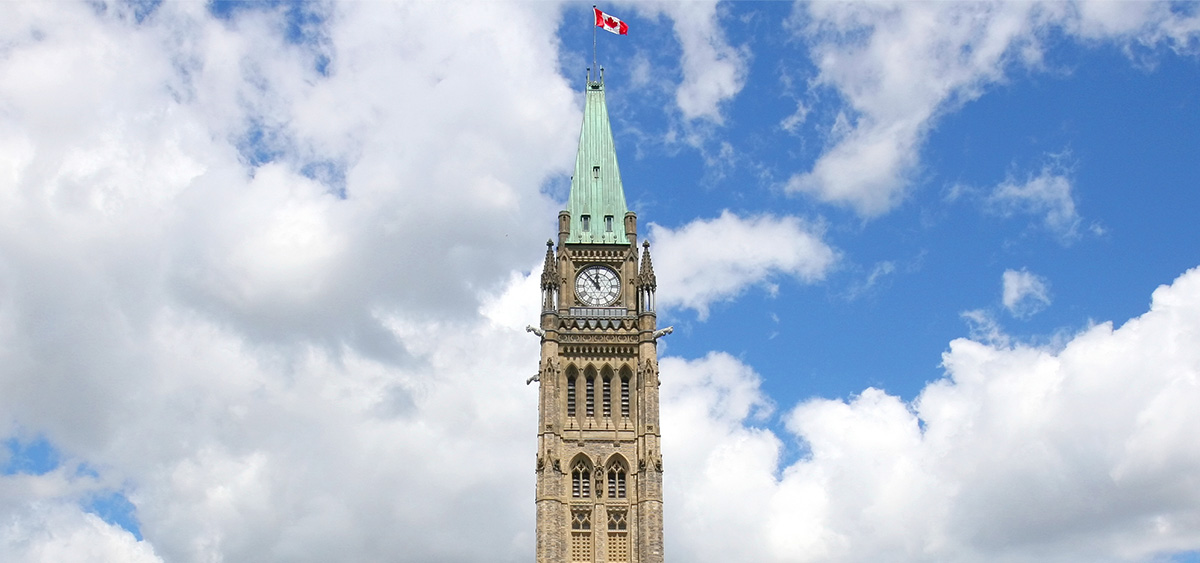Laws are rules that provide a framework for society. Everyone is expected to know and respect the rights and responsibilities found in laws. These laws are often different in different countries.

Who makes laws?
The legislative branch of government has the power to make laws.
In Quebec, the legislative branch is called the National Assembly. At the federal level, it’s the Parliament of Canada.
Quebec
Canada
- The National Assembly makes Quebec laws. They apply only in this province.The Parliament of Quebec is made up of
- the National Assembly, composed of members elected by Quebecers during provincial elections, and
- the King, who is represented by the Lieutenant Governor.
- The members of the National Assembly present and vote on proposed laws, called “bills”. When the Lieutenant Governor approves a bill, it becomes a law.
- The Parliament of Canada makes Canadian laws, also known as federal laws. They apply in all provinces and territories of Canada.The Parliament of Canada is made up of
- the House of Commons, composed of members elected by Canadians during federal elections,
- the Senate, composed of senators suggested by the Prime Minister and appointed by the Governor General, and
- the King, who is represented by the Governor General.
- A law starts out as a bill. Both the House of Commons and the Senate can present bills.For a bill to become a law, the House of Commons, the Senate and the Governor General must approve it.
To learn more about how laws are made, visit the website of the National Assembly or the Parliament of Canada.
Laws, the Constitution and the Charters
The National Assembly and Parliament of Canada can each make laws on certain topics. The Constitution of Canada states which one can make laws on which topic. This is called the “division of powers.”
Also, all Quebec and Canadians laws must respect the Canadian Charter of Rights and Freedoms.
Quebec laws must also respect Quebec’s Charter of human rights and freedoms, which applies only in Quebec.
The charters protect fundamental values in our society, including
- the right to equality and freedom from discrimination due to a physical or mental disability (also called an “intellectual” disability),
- freedom of expression, and
- the right to liberty.
If a person believes her rights have been violated, there are several options.
Types of Laws
Laws cover many topics. There are two main types: civil laws and criminal laws.
Civil Laws
Civil laws apply to relationships between people. Many of these laws involve everyday issues, such as family relationships, property, contracts and relationships between neighbours.
In Quebec, most civil laws are made by the National Assembly. One of the most important laws is the Civil Code of Québec.
Criminal Laws
Criminal laws list and define actions that are crimes. They also specify the punishments for the crimes.
The Parliament of Canada makes criminals laws, and they apply in all of the provinces and territories of Canada. Criminal laws help to protect people and ensure peace and order in society.
In Canada, most crimes and their punishments are in a criminal law called the Criminal Code. This law applies to everyone 12 years old or older. Crimes such as sexual assault and robbery are found in the Criminal Code. Other crimes, such as drug trafficking or possession, are found in other criminal laws.
Judges, lawyers and police officers rely on criminal laws when a person is accused of a crime. They also refer to decisions judges have made in similar cases.
“Ignorance of the Law Is No Excuse”
The principle “Ignorance of the law is no excuse” means that if you are accused of a crime, you can’t argue in your defence that you didn’t know you were breaking the law.
For example, if you were fined for not paying your income taxes, or arrested for drinking alcohol in a park where this is not allowed, you can’t argue that you weren’t aware of the law.
Therefore, people must do everything they can to respect the law and make sure their rights are respected. For example, they can consult a lawyer or notary, do research in a library or ask for information by contacting the government or a legal information service.





